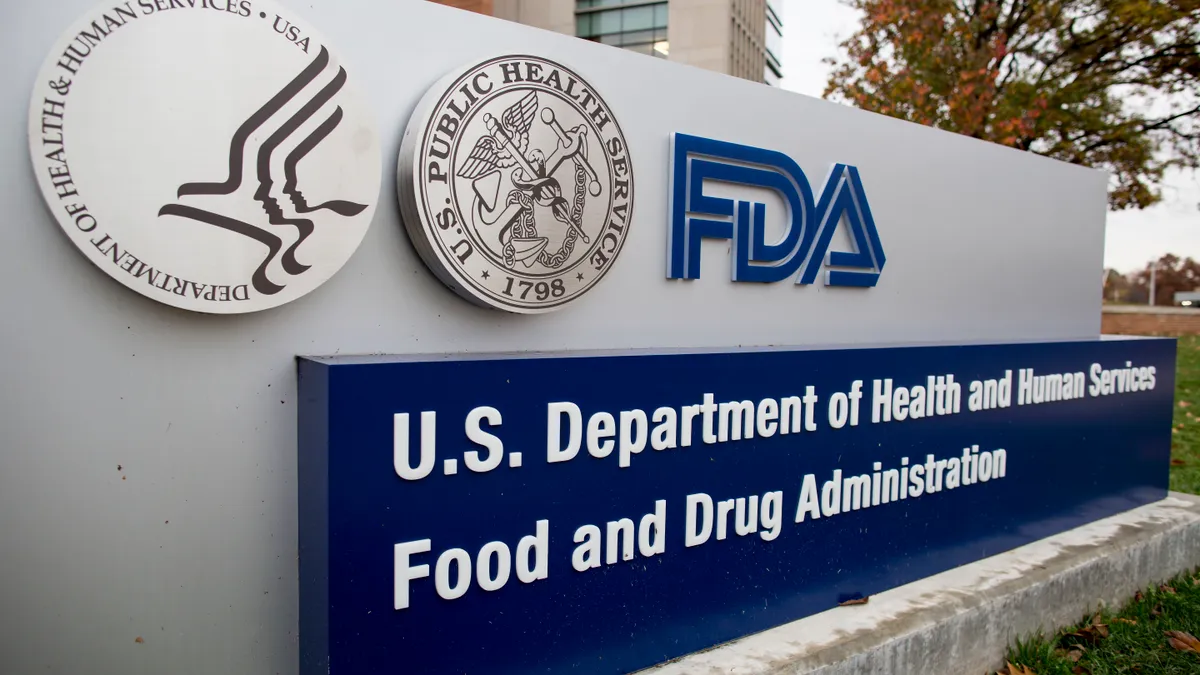Dive Brief:
- FDA announced Wednesday it's looking for new companies to participate in the agency's Software Precertification Program, to see if the agency's test plan can properly assess the safety and effectiveness of software as a medical device compared to traditional review.
- The idea, FDA said, is to test the Pre-Cert model on a rolling basis across a broad spectrum of test cases to evaluate the four components comprising version 1.0 of its working model: if companies can demonstrate a culture of quality and organizational excellence; determine what review is required for Software as a Medical Device (SaMD); conduct streamlined review; and verify for safety and effectiveness through postmarket real-world evidence.
- The new move could signal some of the nine pilot participants do not have an appropriate product to test in 2019, causing FDA to seek new participants, a medical device attorney said.
Dive Insight:
To qualify as a test case volunteer companies must be in good standing and not have outstanding compliance actions, have a track record in developing software, agree to provide variety of information to FDA and have a De Novo or 510(k) for SaMD ready for submission by June 2020.
FDA's search for new companies "is not a surprise to us" and "is a really good thing for the Pre-Cert program," Tidepool CEO Howard Look told MedTech Dive in a statement. Look's company is participating in FDA's pilot.
"There are so many different ways to approach creating high quality software, that the program can only benefit from having more input and test cases for the program," he said.
And AdvaMed, the medical device trade lobby, also told MedTech Dive it supports FDA's move to open the program to new participants.
"We have been supportive of the Pre-Cert Program and support FDA's expanding who can participate in Pre-Cert as a test case so the agency can gather more data points in developing the Pre-Cert Program," AdvaMed spokesperson Mark Brager said. "Ultimately this will help FDA make the program better."
But one attorney familiar with the program said its future is uncertain.
"Given the extraordinarily slow pace of — and little progress in developing the program over the last couple of years — and the fact that they will need legislative authority, the future the program is quite uncertain," Brad Thompson, an attorney at Epstein Becker Green, told MedTech Dive.
"I imagine that some companies will want to get in on the ground floor the program, gaining experience early on," he said. "But, obviously, that only makes sense if you believe this program will ever come to fruition."
Thompson also questioned why a company would want to participate in testing the Pre-Cert Program given what he said is a more burdensome path to market for companies. FDA said in its announcement it "does not intend to provide precertification for companies during the testing in 2019."
But Look said Tidepool, a nonprofit aiming to make diabetes data more actionable, is already finding participation valuable despite the program's development remaining a work in progress.
"Having other [Pre-Cert] participants from Apple, [Google's Verily] and Pear Therapeutics give feedback to our software development approach and our open quality management system was incredible," Look said. "We've received lots of ideas for ways we can continue to improve our process from some really, really smart engineers."












